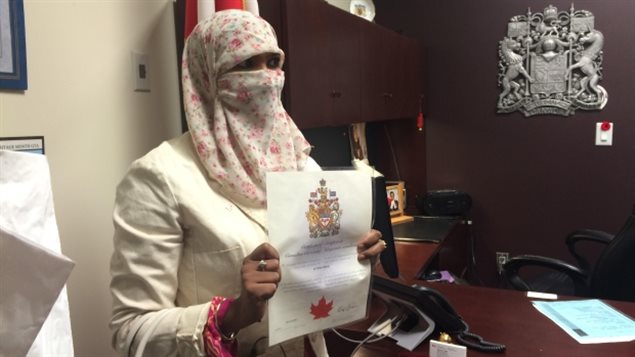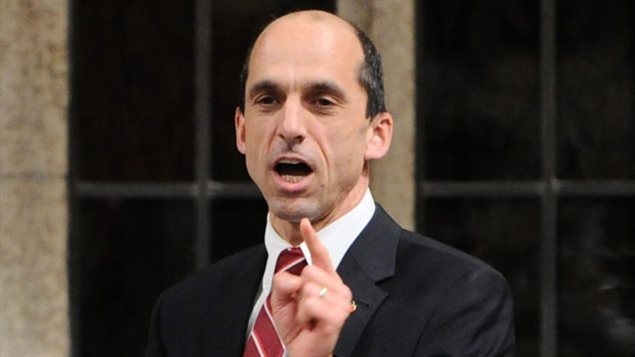It was a bitter and divisive debate in Canada starting in 2011, and coming to a conclusion in 2015. But a political hopeful has re-ignited the debate this week.
The niqab issue was brought to a head when recent Pakistani immigrant Zunera Ishaq insisted on wearing the muslim face veil while taking her oath of citizenship and launched a legal action to be allowed to do so.. The federal Conservative government at the time said the face must be uncovered during such important ceremonies as voting and taking an oath of citizenship. The case went first to the Federal Court and then to the Court of Appeal, both of which ruled in her favour and against the government. The case came in the midst of a federal election and the Conservatives said they intended to appeal to the Supreme Court
Shortly after that legal decision in favour of the niqab, many Canadians voted in the subsequent federal election wearing a variety of masks in protest. Nonetheless, the Conservative government was defeated in favour of the Liberals under Justin Trudeau, which then halted the Supreme Court appeal.
Since then, the issue has been relatively dormant, until this week.
Now, federal Member of Parliament (MP) from Quebec, Steven Blaney has joined the ranks of those vying for the leadership of the Conservative Party to replace former leader Stephen Harper who has since left politics.
“We are a country that is built on immigration, but we have to be sure that those new Canadians we welcome are understanding of how we live. We don’t want our country to become like the country they left. We fully welcome you, but we want you to respect who we are.” Steven Blaney, Oct. 2016
Blaney, the former Minister of Public Safety launched his leadership bid on Sunday and on Monday made a surprising announcement to reporters that if elected as leader and if the party won power, one of his first acts would be to ban the niqab during important ceremonies like taking the oath of citizenship, voting, and for federal public servants to show their faces.

He added that if the Supreme Court ruled against the ban, he would take the unprecendented step of overruling
In a statement Monday he said, “Uncovering your face is a day-to-day requirement for every Canadian whether it is to obtain a driver’s licence or getting a passport for obvious security reasons. This same requirement should apply to all those who swear allegiance to our country, vote in-person at a polling station or work within the federal public service”.
Blaney says under Section 33 of the Charter of Rights and Freedoms (known as the “notwithstanding clause”), the federal of provincial governments can override the fundamental freedoms, equality and legal rights that are entrenched in the Charter. The override is valid for five years.
The federal government has never invoked the clause. which has only ever been invoked by the province of Quebec over language rights.
Alberta, Yukon, and Saskatchewan have also attempted to invoke the clause but without actually doing s for various legal reasons.
Blaney also said he would bolster aspects of language requirements for new immigrants to ensure they can communicate in one of Canada’s official languages, English or French, and to modify the citizenship test to ensure they “understand and appreciate” Canadian principles.
Another of his announced policies would be to give more power to security agencies to screen potential immigrants and refugees for potential security threats.
Blaney joins a long list of nine other declared candidates for the Conservative Party leadership, with at least a couple of others considering whether to run.
Additional information- sources







For reasons beyond our control, and for an undetermined period of time, our comment section is now closed. However, our social networks remain open to your contributions.